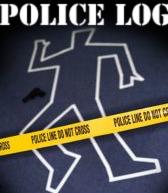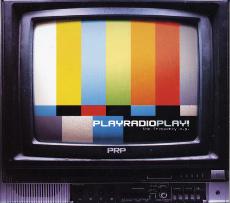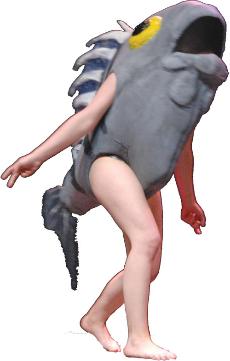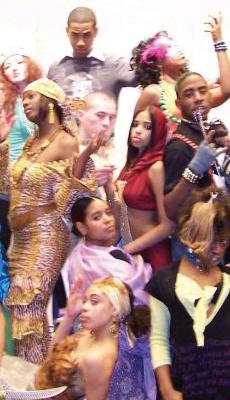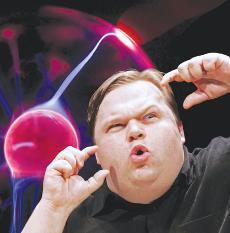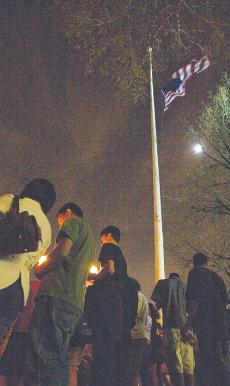Dateline: Downtown
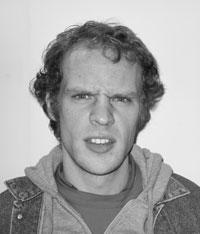
Dateline: Downtown
April 7, 2007
My co-worker was talking about the roughnecks that live around his way on Geneva Avenue. “I swear, man,” D said. “All hours of the night and day, they’re hanging out on the block. I can’t walk past them by myself or they’ll jack me.”
So what do you do when you’re going home? I asked him.
He thought, and his eyes brightened. “I wait for when they change shifts, and I run inside my house!”
Everybody laughed, but there’s no such thing as a shift change with the crews on Geneva. It’s the absurdity that made the joke funny and the reality sad. Some areas of the city are so hot that, as you know, the Guardian Angels have moved from New York City up here. Menino has taken the pragmatic approach, telling the Herald, “They’ve been here before. If they want to come to Boston, they can do it as long as they work with [Police] Commissioner Davis.” The BPD themselves are even less enthusiastic: “Thanks, but no thanks,” said Patrolman’s Association President Tom Nee in the same March 27th article.
I’m in favor of them coming here. Joe Strummer of the Clash, in their song “Red Angel Dragnet” said about the Angels, “I come from a long way away/ And I know a life giver over a life taker,” before summoning the specter of Travis Bickle from Taxi Driver; you know: “Are you talkin’ to me?”
Are the Guardian Angels little better than street-prowling vigilantes? Is their founder, Curtis Silwa, a self-aggrandizing blowhard? Are those red jackets the garb of a macho cult? Yes, cubed.
Is the situation on Boston’s streets out of control? I don’t know. But we’ve had more murders this year than we’ve had at this point in a long time, and it doesn’t look like Menino has any answers. I remember before he came into office (there were more than one hundred and fifty murders in the city in 1990) and I don’t want things to get that way again.
Days after Chimezie Akara and Andre Green were hit with life plus sixty for shooting a pregnant lady on the train, another thug sprayed an MBTA bus at Columbia and Washington in Grove Hall, and a 22 year old woman was shot, again in Dot. People say that Boston is a safe city where you can walk in almost any neighborhood at any hour of the night and feel secure. But it doesn’t take much for that to change.
Here are the headlines picked up off BPDNews.com from just one day at the end of March: “Person shot in Mattapan”. “Stabbing Victim Self Applied to Hospital”. “Two Guns Recovered After Shots Fired”. “Two People Stabbed in South Boston”. All separate incidents. One thing about urban crime is that it doesn’t stay particular to the ghetto. It spreads as it worsens, so all those cute little artist lofts they’re building o Harrison Avenue, “SoWa” as they’re calling it these days, are going to be in jeopardy if Villa Victoria and Lenox Street explode this summer. And that means Harrison will be right back where it was in the late ’80s, new police station or not. The officers don’t get out of their cruisers anymore.
In response to the heat of the early ’90s, the Ten Points coalition made up of local pastors and clergy met the problem at street level, and people like Bruce Wall stuck their mugs in the papers until the local leaders had to listen, and money and people finally came in to clean the city streets up. I took part in one of these programs as a sixteen-year-old shoplifter. I sat in an auditorium in the YMCA at Huntington Avenue with others in my program — graffiti artists, stick-up kids– and listened to a black judge talk about the need for a good education. I sat quiet, but the others in my program heckled him. “Why don’t you stay in the community?” I remember one of them asking.
“I am in the community.” They didn’t believe him.
“Yeh! Nine-to-five, locking…” and here you can use your own euphemism for “young African-American”.
“And five to nine. I live in Grove Hall.”
They quieted.
That is what is needed. We don’t need Guardian Angels coming from New York City, we need our own guardian angels living in our communities, showing young kids that A) actions have consequences, and B) jail life is no kind of life. Most of the crime out here I would hazard to guess is being caused by the young ones full of hormones and Colt .45, because life on the streets is more immediately appealing to them then life in a classroom. Jail doesn’t seem like punishment, it seems like a place to hang out with their cousins. They can be big men in jail or on the streets. They can’t see themselves as big men anywhere else. Slinging jums and making quick money is glamorous. Being a sucker slinging Big Macs is not. It’s quick dollars or slow dimes to their minds, and fast money is tough to say no to.
Look. We’re here at UMass Boston because we understand that education is important. We’ll spend a few years here and move on to something else. And we hear a lot about the Urban Mission. Whether it works in the real world or not is up to us individually, with what we do with our educations, whether we use them just to better our own lot or to better the world around us. Whether one stays in Grove Hall after they’ve made it or bounces to Wellesley. You can guess where I stand, but I’m from West Roxbury (the golden ghetto), not real Roxbury. It’s a tough case to make to someone from a tougher background.
But we’ve got enough life takers. We need life givers.






















































